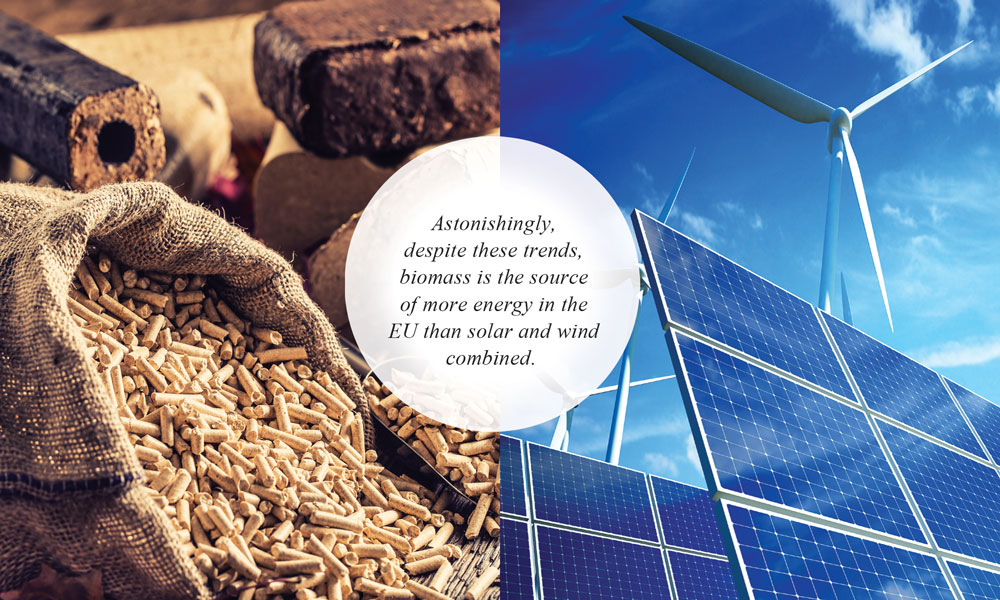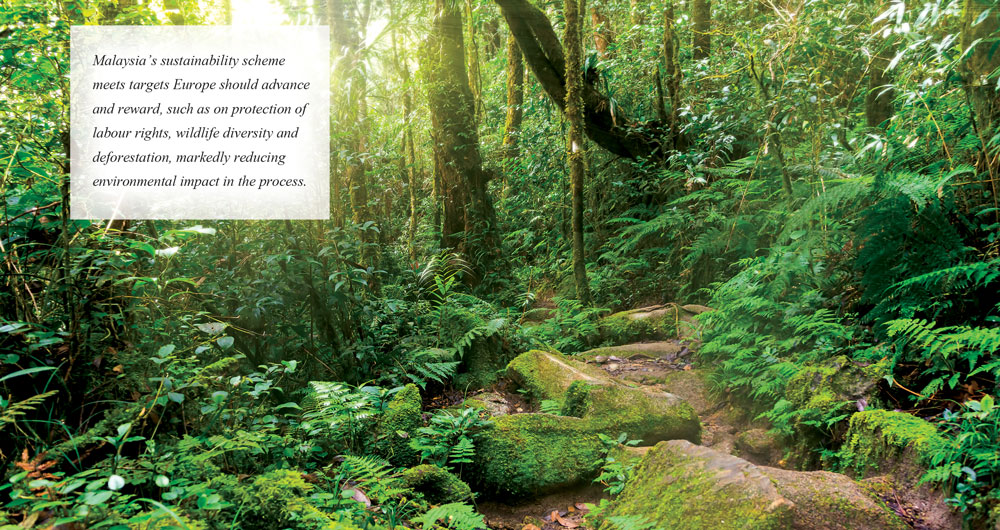



Questionable EU policies
March, 2021 in Issue 1 - 2021, Cover Story
Even the most well-intentioned efforts can go awry. Policies meant to accomplish one outcome, or prevent another, sometimes have unforeseen effects. The European Union (EU) is not exempt.
At January’s Paris biodiversity summit, some four dozen nations together pledged to safeguard one-third of their land and seas. The EU joined the effort, vowing to plant three billion trees by 2030.
The ostensible purpose was preventing deforestation. The tragedy, however, is that Europe’s addiction to biofuels – meant to stave off environmental harm – has wrought the loss of much of its forest cover in recent years.
In the last five years, deforestation in the Baltics and Scandinavia has skyrocketed by half. What’s to blame is the EU’s Renewable Energy Directive (RED), which called for countries to supply 20% of their energy needs via renewable sources.
The result was a stampede towards biofuels manufactured from biomass. This is organic matter, including but not limited to, animal waste; another form includes wood pellets, by-products from forests. Strangely, the EU classified the latter as a carbon-neutral option, preferable to coal, which had a predictable result – widespread deforestation as European countries sought to profit from this new demand.
In 2018, the EU tweaked the RED, aiming for a 32% renewable energy supply by 2030. The aspiration to protect and improve the environment is praiseworthy, but the road to hell can be paved with good intentions.
Forests absorb 10% of annual European emissions. The idea that wood pellets, drawn from forests, are renewable is at the very least far-fetched – at worst, downright dangerous. The EU has allowed a worthwhile goal to be pursued in the most problematic of ways and the result is worsening climate change, deforestation and biodiversity loss.

Vicious circle
Not only does it take decades to restore trees – decades that ecosystems on the tipping point do not have – but burned wood releases more carbon than coal, oil and gas. Worse still, destroyed old-growth forests are replaced by even-aged monocultures which retain up to 50% less carbon.
Such tree plantations, which are oddly sometimes classified as forest because of commercial pressures, aren’t even allowed to develop naturally. In fact, they are often cut down well before they can absorb enough carbon to replace what is released when their predecessors were burned. This harvesting of trees releases still more carbon in what becomes a vicious circle of carbon debt.
Astonishingly, despite these trends, biomass is the source of more energy in the EU than solar and wind combined. Classifying biomass as renewable energy encourages rampant and practically irreversible deforestation.
The numbers alone tell a distressing tale. Loss of biomass increased across Europe by some 70% between 2011-15 and 2016-18, with the Nordic region suffering especially devastating losses.
Disturbing tendency
Europe has a disturbing tendency to promote counter-productive climate policies which, as with the RED, cause far more harm than good. An instructive international example is palm oil, which has been banned for use (by 2030) by the EU as a biofuel – even as countries such as Malaysia, a major palm oil producer, have made verifiable progress towards genuine environmental sustainability.
The result has been another case of unintended consequences: palm oil – which is present in up to 50% of wrapped products – is replaced by alternative vegetable oils, such as soybean, sunflower or coconut. These replacements however ignore sustainable options, such as hemp oil, and are not neutral alternatives.
Indeed, as it turns out, they consume far more resources, requiring up to 10 times more land and fertiliser to produce an equivalent amount of oil. The ban on palm oil thus only leads consumers in other directions manifestly worse for the environment.

Given that nearly 90% of Malaysian oil palm plantations have been marked sustainable – under the Malaysian Sustainable Palm Oil scheme – such European sanction is unfortunate, wrongheaded and, frankly, nearly incomprehensible. Malaysia’s sustainability scheme meets targets Europe should advance and reward, such as on protection of labour rights, wildlife diversity and deforestation, markedly reducing environmental impact in the process.
The result has been a year-on-year decline in deforestation stretching back three years. Yet the EU continues to display a worrying intransigence, claiming on the one hand to protect the environment while acting on the other to harm it.
Double standards
The specifics of the two cases – biomass and palm oil – are different but the upshot is similar. While Europe’s economy may benefit in the short-term from the adopted approach, Europe risks losing in the long-term – not only as its economy struggles with the burden of accelerating climate change but as its status as an ethical exemplar falls into jeopardy. That means Europe’s ability to persuade other nations to take decisions and pursue policies in their joint interest will decline – and may just disappear.
When the European Commission meets this summer to revisit its climate strategy, on the quest for climate-neutrality, it must align its domestic and its international policies so as to end the double standards which have been defended for too long. The need has never been greater.

Rianne ten Veen
Environment & Disaster-management Consultant
The author works with, among others, the European Commission’s Erasmus programme, the Intergovernmental Panel on Climate Change, other UN agencies, the Dutch Red Cross and the UK Green Party.
This article was posted on Feb 9 at: https://www.socialeurope.eu/green-intentions-brown-outcomes